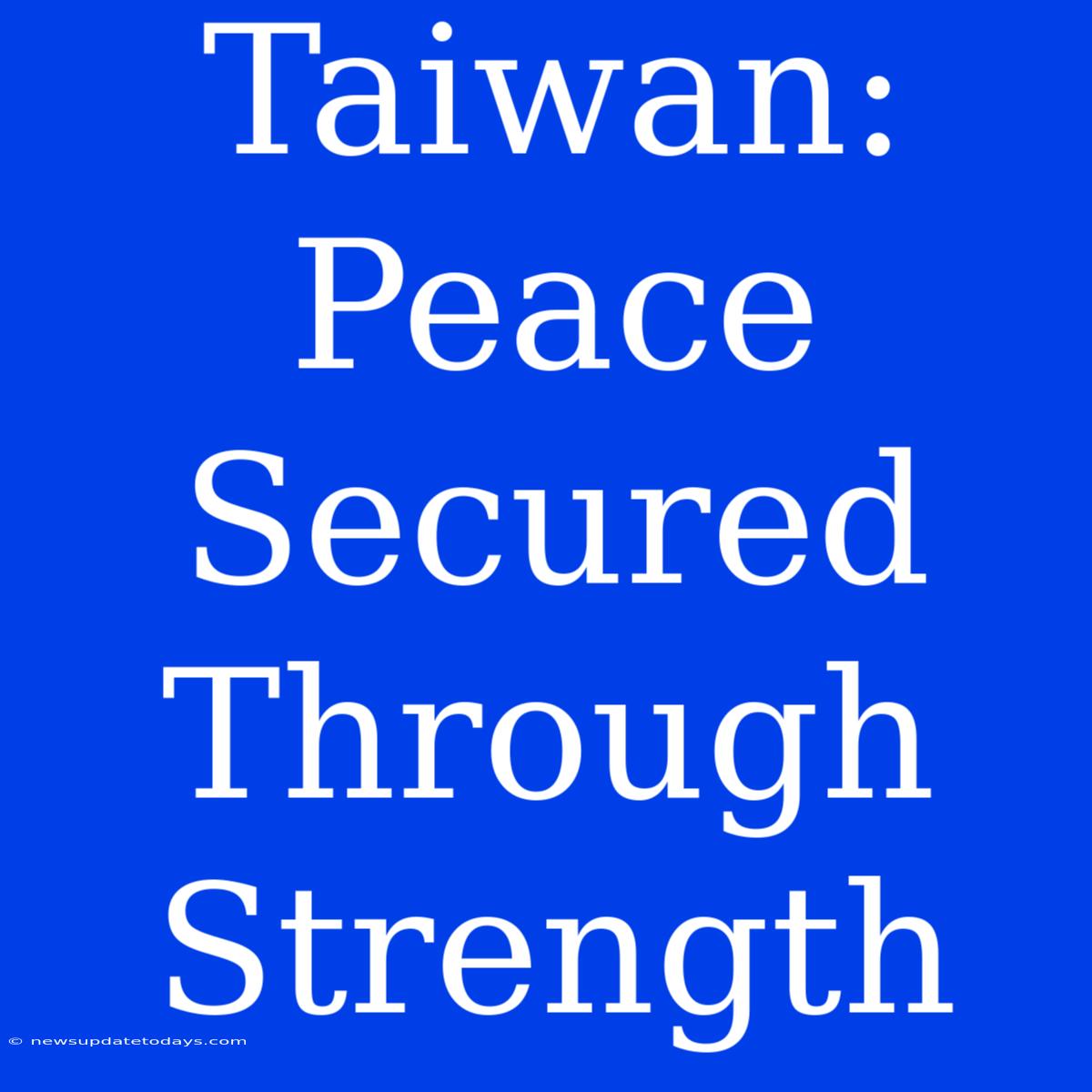Taiwan: Peace Secured Through Strength? A Complex Equation
Taiwan's existence is a constant balancing act, a delicate dance on the precipice of potential conflict. The island nation's relationship with mainland China is fraught with historical complexities and simmering tensions, leading to the crucial question: Can peace truly be secured through strength? This article explores the multifaceted nature of Taiwan's defense strategy and its implications for regional stability.
The Growing Threat from Mainland China
The People's Republic of China (PRC) considers Taiwan a breakaway province, and its rhetoric regarding "reunification," often framed as a matter of national sovereignty, has grown increasingly assertive in recent years. This assertive posture includes:
- Military Buildup: China's rapid military modernization, including its expanding naval and air forces, poses a significant threat to Taiwan's security. Frequent incursions into Taiwan's Air Defense Identification Zone (ADIZ) serve as a constant reminder of this looming danger.
- Economic Pressure: China wields considerable economic leverage, using trade restrictions and diplomatic pressure to isolate Taiwan internationally. This economic coercion aims to weaken Taiwan's resolve and undermine its international support.
- Information Warfare: The PRC actively engages in disinformation campaigns, seeking to sow discord within Taiwanese society and undermine public confidence in the government's ability to protect the island.
Taiwan's Defense Strategy: A Multi-Layered Approach
Faced with these escalating threats, Taiwan has adopted a comprehensive defense strategy focusing on:
- Asymmetric Warfare: Recognizing the disparity in military size and resources, Taiwan emphasizes asymmetric warfare tactics, focusing on capabilities that can inflict significant damage on a larger adversary, such as advanced anti-ship missiles and sophisticated defense systems.
- Strengthening Alliances: Taiwan actively cultivates relationships with like-minded democracies, seeking to strengthen its international support network and deter potential aggression. This includes forging closer ties with the United States and other regional partners.
- Resilience and Civil Defense: Preparing the civilian population for potential conflict through civil defense programs and strengthening critical infrastructure is a key element of Taiwan's defense strategy. This aims to ensure the island's ability to withstand a potential attack.
- Modernization of Armed Forces: Investing heavily in advanced weaponry and military training is crucial. Taiwan continues to seek modern military equipment to offset China's military advantages.
Is Strength Enough? The Limitations of a Military Approach
While strengthening its defense capabilities is undeniably crucial for Taiwan's security, relying solely on military strength might not guarantee lasting peace. There are inherent limitations:
- Escalation Risk: An arms race could unintentionally lead to a dangerous escalation, increasing the probability of unintended conflict.
- Economic Burden: Massive military spending can strain Taiwan's economy and divert resources from other essential sectors.
- Limited International Support: While international support is vital, achieving a broad and unwavering consensus on intervention in a potential conflict with China remains a significant challenge.
The Path to Lasting Peace: A Broader Perspective
Securing lasting peace for Taiwan requires a multifaceted approach that transcends military might. This includes:
- Diplomacy and Dialogue: Maintaining open channels of communication and seeking peaceful resolutions through dialogue, even in the face of adversity, remains crucial.
- Economic Cooperation: Promoting economic interdependence could foster mutual benefits and reduce the incentive for conflict.
- International Engagement: Continuing to strengthen alliances and garner international support is vital for deterring aggression.
In conclusion, while a strong defense is essential for Taiwan's survival, it's not a panacea for securing lasting peace. A comprehensive strategy that combines military preparedness, diplomatic engagement, and international cooperation is the most effective path towards ensuring the island's future security and stability. The equation for peace in the Taiwan Strait is complex, and military strength represents only one, albeit crucial, component.

